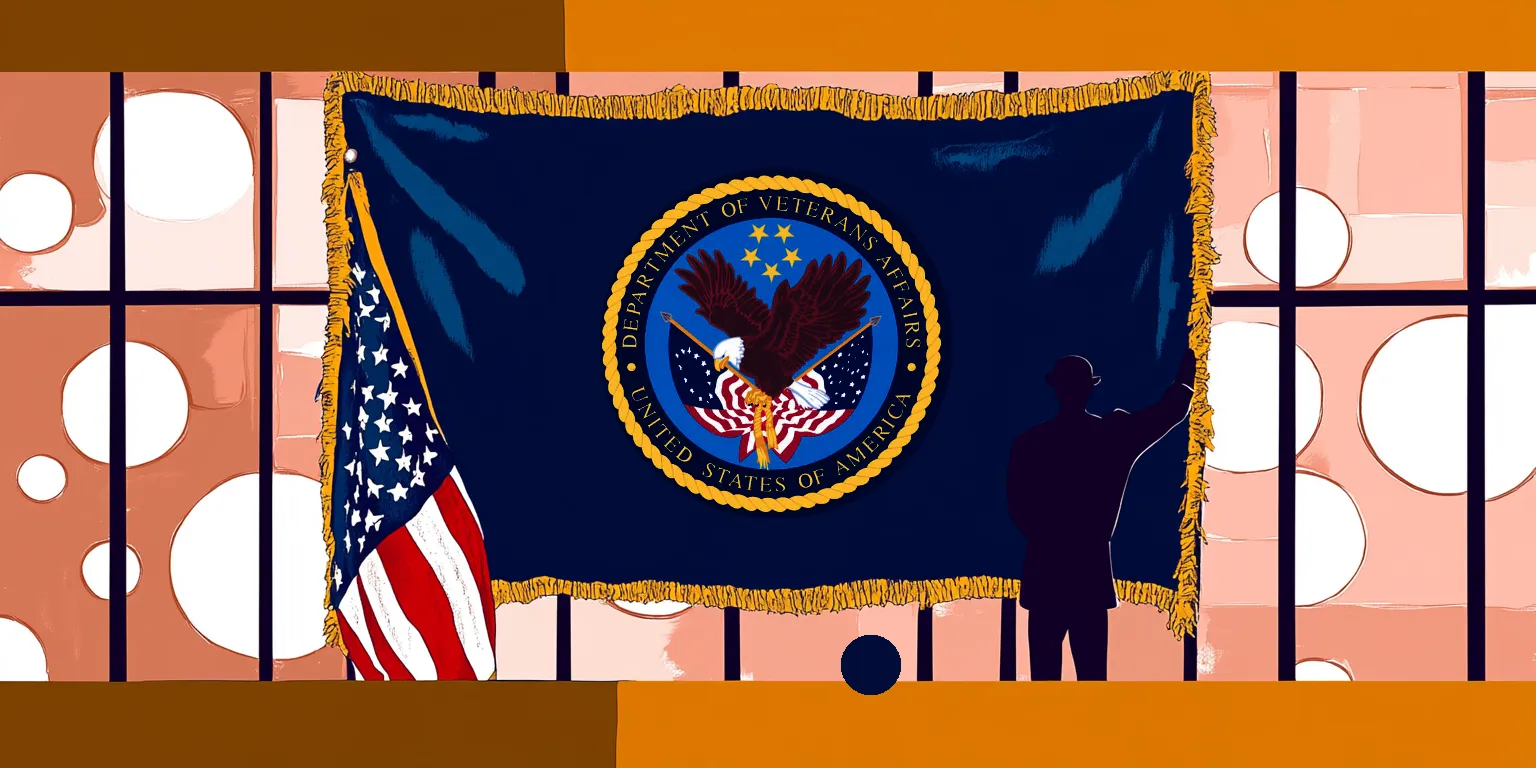In this week’s Psychedelic News Roundup, we explore GoDaddy founder Bo Parsons’s journey with psilocybin and why he feels it helped him heal from PTSD. Other news includes the stories of several athletes who have explored psychedelic medicine after suffering sports-related injuries, as well as a new drug application from Filament Health and more.
Bob Parsons’ Psychedelic Journey: How Magic Mushrooms Saved Him from PTSD

In an interview with the Daily Beast, Bob Parsons, the billionaire founder of GoDaddy, shared his transformative experience with psychedelics. This journey took him from the lingering shadows of PTSD, a legacy of his tumultuous childhood and harrowing experiences in Vietnam, to a place of healing and self-discovery. In 2018, Parsons embarked on a four-day psychedelic trip in Hawaii with the assistance of two psychedelic guides, consuming a potent brew of psilocybin tea. This experience, he recounts, helped him confront and process decades of PTSD, marking a pivotal moment in his life. According to Parsons, psychedelics have helped him process trauma from his childhood and his later involvement in the
Vietnam War, where he witnessed the horrible injury of a close friend. His narrative reflects a growing interest in the potential of psychedelics to offer profound therapeutic benefits, particularly for those haunted by the wounds of war or other suffering. “I finally came home,” Parsons reflects on his experience, signaling a return to a sense of self and an awakening to new possibilities of healing and understanding.

In the aftermath of his and integration of his psychedelic experiences, Parsons has become an advocate for further research and the legalization of psychedelic-assisted therapy centers. His substantial donations to research institutions like the University of California, Berkeley, and his legislative efforts in Arizona aim to pave the way for others to access these potentially life-altering treatments.
Parsons’ journey from a place of pain to one of profound change underscores the potential of these substances to shape the future of mental health treatment.(1)
Major League Athletes Use Psychedelics in the Search for Healing

CNN details the story of Daniel Carcillo’s journey from a celebrated NHL career to battling the severe aftermath of multiple concussions, highlighting the desperate search for alternative treatments to traditional medical approaches. By age 31, Carcillo was suffering from “dementia-like” symptoms, depression, anxiety, and debilitating headaches, a stark contrast to his earlier life filled with professional achievements and the joy of starting a family. His story is a poignant example of the physical and psychological toll that professional sports can inflict on athletes, leading some, like Carcillo, to explore psychedelic substances as a means of healing.
Keep Up with Uncensored Psychedelic Trends
Join our newsletter at Psychedelics Uncensored.
We respect and protect your privacy. By subscribing your info will be subject to our privacy policy . Unsubscribe easily at any time
Carcillo’s turning point came when he decided to take psilocybin, a decision driven by his deteriorating condition and the lack of improvement from conventional treatments. The experience offered him immediate relief, marking a significant shift in his mental health and outlook on life. This positive change spurred him to advocate for the therapeutic potential of psychedelics, joining a growing number of athletes and public figures who share their own transformative experiences with these substances. Carcillo helped found Wesana Health, a biotechnology company focused on developing psychedelic medicines.
The legal landscape around psychedelics is slowly changing, with increasing research and anecdotal evidence supporting their efficacy in treating conditions like PTSD and depression. Colorado and Oregon have made moves to decriminalize psilocybin, and Australia has legalized the clinical prescribing of MDMA (aka the “love drug”) and psilocybin for specific mental health disorders. However, the use of psychedelics is not without risks, and experts caution against their recreational use without proper support and understanding of their potential side effects.
High-profile athletes like Carcillo and former boxer Mike Tyson have publicly discussed the benefits of psychedelics, suggesting that these substances could play a role in improving mental health and even athletic performance.
While early findings are promising, there’s a call for more education and awareness to ensure that individuals approach these substances with the respect and care they require. Psychedelics could potentially enhance sports performance by improving focus, discipline, and the ability to enter flow states, suggesting a broad range of applications beyond just mental health treatment.
Anna Symonds, a retired rugby player, also shared her personal experience with psychedelics, highlighting their potential to offer clarity and aid in dealing with physical and mental health challenges post-retirement. Symonds’ story, along with Carcillo’s and others, reflects a larger narrative of seeking alternative therapies to conventional medicine, pointing towards a future where psychedelics are recognized for their therapeutic value and integrated into broader health and wellness practices.(2)
Illinois Eyes Psychedelic Reform with the CURE Act for Mental Health Advancements

As detailed by Marijuana Moment, Illinois Senator Rachel Ventura has introduced the Compassionate Use and Research of Entheogens (CURE) Act, signaling a significant shift towards embracing psychedelics for therapeutic purposes. With plans to expand the program to include other psychedelics like mescaline, ibogaine, and DMT, Illinois is positioning itself at the forefront of psychedelic reform.
Keep Up with Psychedelic Trends
Get uncensored psychedelic news, events, and updates. Join Psychedelics Uncensored!
We respect and protect your privacy. By subscribing your info will be subject to our privacy policy . Unsubscribe easily at any time
The CURE Act proposes removing psilocybin from the state’s controlled substances list and creating a comprehensive framework for psilocybin facilitator training and service center licensing. This initiative underscores a commitment to exploring alternative treatments for conditions such as PTSD, where traditional therapies fall short. The inclusion of an advisory board ensures a thoughtful approach to integrating these substances into therapeutic settings, intending to extend legal and regulated access to additional psychedelics by 2027.
Key components of the bill include the expungement of prior psilocybin possession convictions and a proposed 15 percent tax on psilocybin products used in service centers, making therapy accessible while generating state revenue. This move, supported by organizations like the Law Enforcement Action Partnership (LEAP) and the Illinois Psychedelic Society, highlights a shift towards a health-focused, harm-reduction approach to natural medicines.(3)
Filament Health Advances Psychedelic Research with FDA Approval of Investigational Psilocybin Application

Filament Health has achieved a significant milestone with the U.S. Food and Drug Administration’s (FDA) acceptance of its Investigational New Drug (IND) application for PEX010, its psilocybin-based drug candidate. This approval marks a pivotal step forward in the use of psychedelics for the treatment of Substance Use Disorders (SUD), including Opioid Use Disorder (OUD). The green light from the FDA allows Filament to initiate research in the United States, building on the progress already made in Canada.
Benjamin Lightburn, CEO and Co-Founder of Filament Health highlighted the urgent need for innovative solutions to address the growing toxic drug crisis in North America. Lightburn expressed optimism that PEX010 could provide a much-needed alternative for individuals struggling with substance use disorders. This botanical psilocybin candidate has previously garnered positive attention in Canada, receiving a no-objection from Health Canada for its investigational protocol, signifying its potential as a promising therapeutic option.
The IND approval by the FDA enables Filament Health to expand its research footprint into the U.S. and contribute valuable insights into the therapeutic efficacy of psilocybin across a spectrum of conditions. PEX010 is currently being studied by 24 research institutions and licensing partners across Canada, the USA, Europe, and Israel for its potential applications in treating alcohol use disorder, depression, and coma. This broad investigation underscores the versatile potential of psilocybin as a cornerstone in the next generation of psychedelic-assisted therapies.(4)
Zebrafish Study Highlights Psilocybin’s Anti-anxiety Effects

A new study published in Nature explores the complex interaction of psilocybin and the brain. Serotonergic psychedelics, such as psilocybin, are increasingly recognized for their potential in treating psychiatric disorders. However, psychedelic’s mechanisms of action remain unclear. Researchers have begun to unravel these mechanisms in a novel study utilizing larval zebrafish and machine-learning analyses of their behavior.
The study identified that acute psilocybin treatment encourages spontaneous exploration and reduces stress-induced irregular swim patterns, showcasing both stimulant and anxiolytic (anti-anxiety) effects distinct from traditional SSRIs and similar to ketamine’s effects.
This research highlights the suppression of serotonergic neurons (chemical receivers that interact with serotonin) through the activation of local GABAergic neurons (affects the neurotransmitter gamma-aminobutyric acid), aligning with findings in mammals and suggesting a universal neural action of psychedelics across species. In other words, certain brain functions may be common across multiple species.
Implementing a wide-field behavioral tracking system allowed for an unprecedented examination of zebrafish’s responses to psilocybin, revealing intricate behavioral states linked to stress exposure and spontaneous activity.
The findings provide a foundation for further exploration into the serotonergic system’s role in mood regulation and stress response, with larval zebrafish offering a promising model for examining complex brain dynamics underpinning the effects of serotonergic psychedelics. By mapping these neural and behavioral responses to psilocybin, the study paves the way for new therapeutic strategies targeting psychiatric disorders with greater precision and efficacy.(5)
This week’s Psychedelic News Roundup showcases the profound impact of psychedelics on individuals from diverse backgrounds, from a tech billionaire’s journey to healing from PTSD through psilocybin to athletes finding solace in psychedelic medicine for sports-related injuries. The advancement of psychedelic research, exemplified by Filament Health’s FDA-approved study on psilocybin for substance use disorders and groundbreaking research using larval zebrafish, continues to underscore the therapeutic potential of these substances. As legislative efforts like Illinois’ CURE Act push for the legalization and regulated use of psychedelics, and as more individuals share their transformative experiences, we edge closer to a new era in mental health treatment where psychedelics play a pivotal role in healing and well-being.
Sources

1. Kirsch, N. (2024, February 20). GoDaddy Billionaire Dishes About His 4-Day Psychedelic Trip. The Daily Beast. https://www.thedailybeast.com/godaddy-billionaire-bob-parsons-details-his-four-day-psychedelic-trip
2. Woodyatt, A. (2024, February 19). These athletes suffered life-changing injuries. Then, they turned to psychedelics. CNN. https://www.cnn.com/2024/02/19/sport/psilocybin-athletes-life-changing-injuries-psychedelics-spt-intl/index.html
3. Jaeger, K. (2024, February 21). Illinois Bill Would Legalize Psilocybin And Create Service Centers, With Plans To Add More Psychedelics To The Program. Marijuana Moment. https://www.marijuanamoment.net/illinois-bill-would-legalize-psilocybin-and-create-service-centers-with-plans-to-add-more-psychedelics-to-the-program/
4. Filament Health Announces FDA Opening Of Investigational New Drug Application For Substance Use Disorders. (n.d.). Www.filament.health. Retrieved February 22, 2024, from https://www.filament.health/news/filament-health-announces-fda-opening-of-investigational-new-drug-application-for-substance-use-disorders
5. Braun, D., Rosenberg, A. M., Rabaniam, E., Haruvi, R., Malamud, D., Barbara, R., Aiznkot, T., Levavi-Sivan, B., & Kawashima, T. (2024). High-resolution tracking of unconfined zebrafish behavior reveals stimulatory and anxiolytic effects of psilocybin. Molecular Psychiatry, 1–17. https://doi.org/10.1038/s41380-023-02391-7
This material is not intended as a replacement or substitute for any legal or medical advice. Always consult a medical professional about your health needs. Psychedelics are widely illegal in the United States, and readers should always be informed about local, state, and federal regulations regarding psychedelics or other drugs.

 David Connell
David Connell






 Ross Dillon
Ross Dillon 
